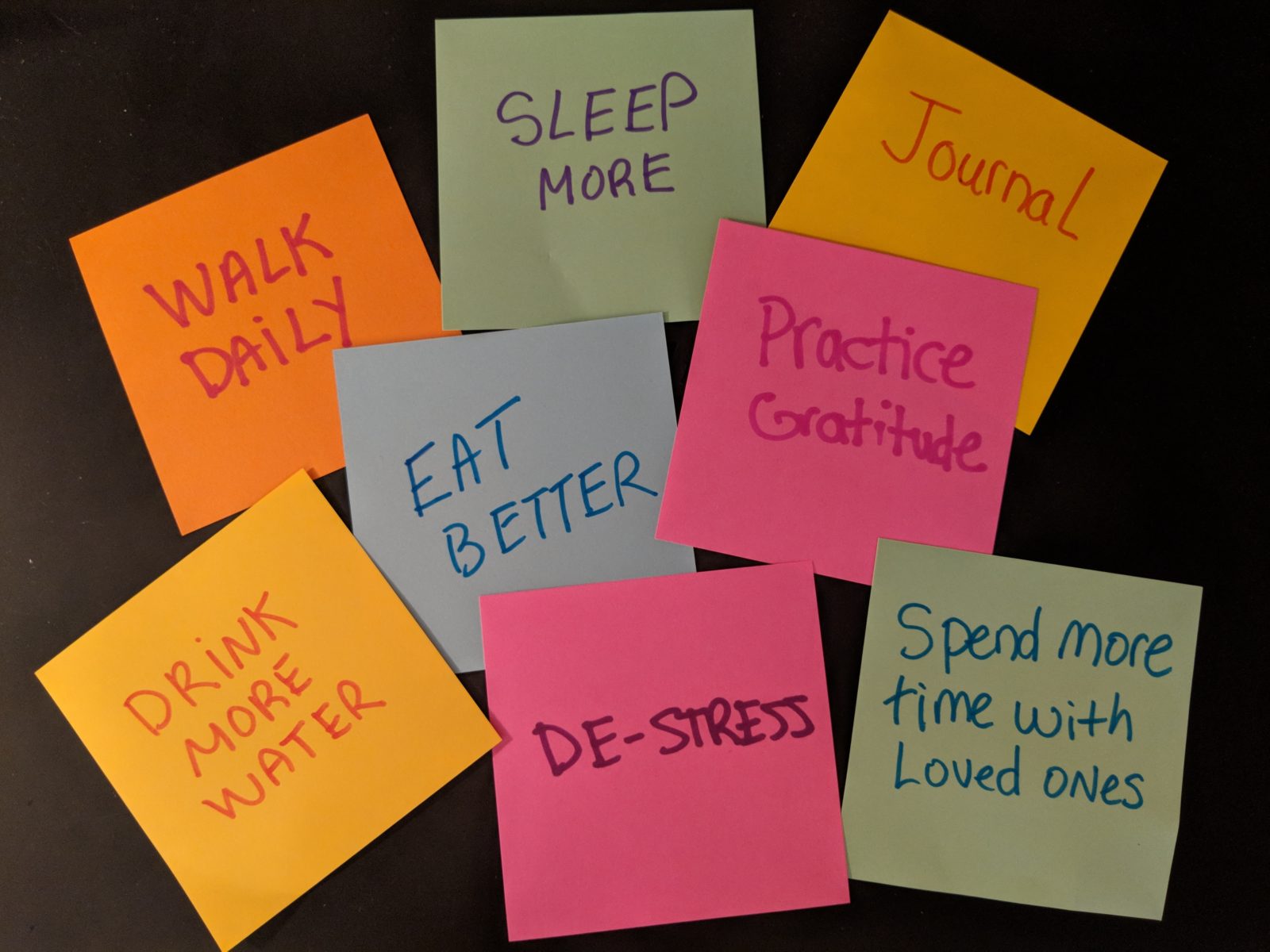In, 3 Habits that Changed My Life, we explored how healthy habit change can transform the way you choose to live. Whether your goal is practicing stress management strategies, spending more time with your family, or losing 10 pounds; the steps to achieving these goals are the same. First, you must understand the nature of a habit. Secondly, and most importantly, you need to understand the motivation behind the ‘WHY.’ Why do you want to change this habit? What do you get out of it? How will reaching this goal change your life? Knowing the purpose behind your goals is essential for lasting behavioral change to be successful.
What is a habit?
A habit is something you do on a regular basis that does not require thought. It’s an automatic behavior. Once you develop a habit your body remembers it. You never break a habit, you replace it with a different one. Most people think it takes 21 days to form a habit, but according to a 2009 study led by Phillipa Lally, at University College in London, it takes on average, 66 days for a new behavior to become automatic.1 So, what does that mean for us? New habits are formed through repetition, so practice your new habit daily.
Follow these 7 steps to build healthy habits for life:
- Prioritize Goals- Choose one habit at a time to focus on. Which habit change will have the most positive impact on your life?
- Explore Intent- Examine why you want to adopt this habit. If you don’t understand the reason behind ‘the why,’ you may not gain the momentum you need to see it through to completion. Is the idea behind the habit your idea or did someone else suggest it? Is the habit something you enjoy doing? You will not succeed at habit-forming if you can’t stand 100% behind why you want this habit to work. Knowing ‘your why,’ helps to remove any lack of confidence you may feel when trying to achieve your goal. Don’t let insecurities and excuses hold you back.
- Visualize Success- Once you understand your ‘why,’ visualize it. Think about what your life will look like once you reach your goal. How will you feel? How will it change your life? Write these feelings and impressions down on paper and refer to them when you need an incentive to keep going. Visualization of achieving your goal is motivating. You are more likely to change your behavior and practice new habits if you are prepared and you believe in what you are doing.
- Identify Triggers- A bad habit can be formed out of laziness. You do something a certain way and continue to do it without thought or a reason why because it’s easy. Some people revert to old habits, good or bad, during times of stress. The brain doesn’t know the difference between a bad habit or a good one. It just knows that you are repeatedly doing something. That act imprints on your brain and you begin to do that behavior automatically. If you want to ‘break a habit,’ consider the circumstances and the environment in which you usually perform this habit. Ask yourself why you do it. Is it out of laziness, stress, or fear? Think about what triggers your habits so that you can replace a bad habit with a good one. If you can identify your triggers, then you can influence them.
- Create a Plan- Write down what steps you will take to achieve your goal. Be thorough. Don’t overwhelm yourself with big unattainable hurdles. Break it down into small achievable daily objectives. Don’t worry about doing things perfectly. Just start.
- Practice Accountability- Tell your family and friends what you’re doing. Let them know how they can help. The more people who know of your plans the harder it will be to quit. Post your intentions on social media. Write them on post-its. Be sure to log your action steps into your daily planner or smartphone to keep track of your progress and to hold yourself accountable.
- Reward Yourself- Science suggests that part of forming new habits is experiencing the ‘feel good’ moments of satisfaction that you get when you hit your daily goals. These dopamine and serotonin boosts make your body crave more of those good feelings leading to a commitment of the habit. Your body and brain are hardwired to want to feel good. Reward yourself to stay inspired and stay on target.
Now it’s your turn! Answer the following questions and get started on changing your life:
- What habit would you like to change?
- What is the motivation behind this goal?
- What will your life look like when you achieve your goal?
- What external cues influence your behavior?
- How will you break up your goal into smaller steps?
- How will you hold yourself accountable?
- How will you celebrate your wins, large and small?
Be patient. It took time to form your habits and it will take time to create new ones. The payoff will be worth it as you make your future a healthier one.
1 Lally P, van Jaarsveld C, Potts H, Wardle J, “ How Are Habits Formed: Modelling Habit Formation in the Real World,” Eur. J. Soc. Psychol., Vol 40, Issue 6, John Wiley & Sons, Ltd. 1099-0992 http://dx.doi/10.1002/ejsp.6, p 998-1009, 2010.
